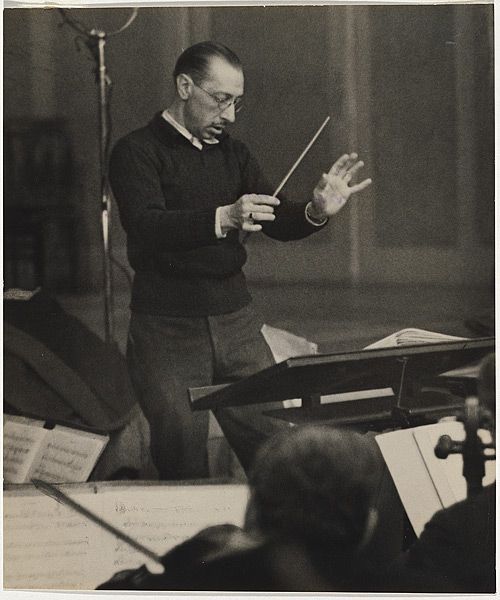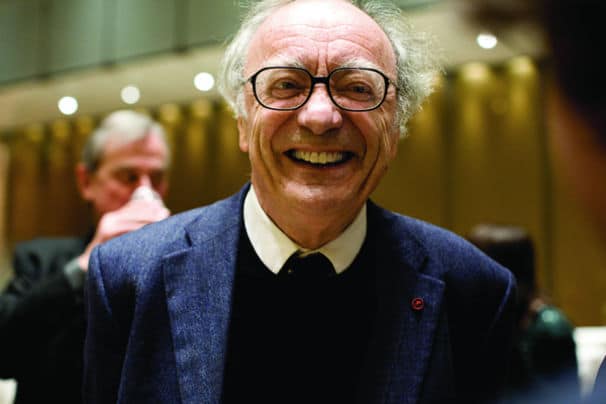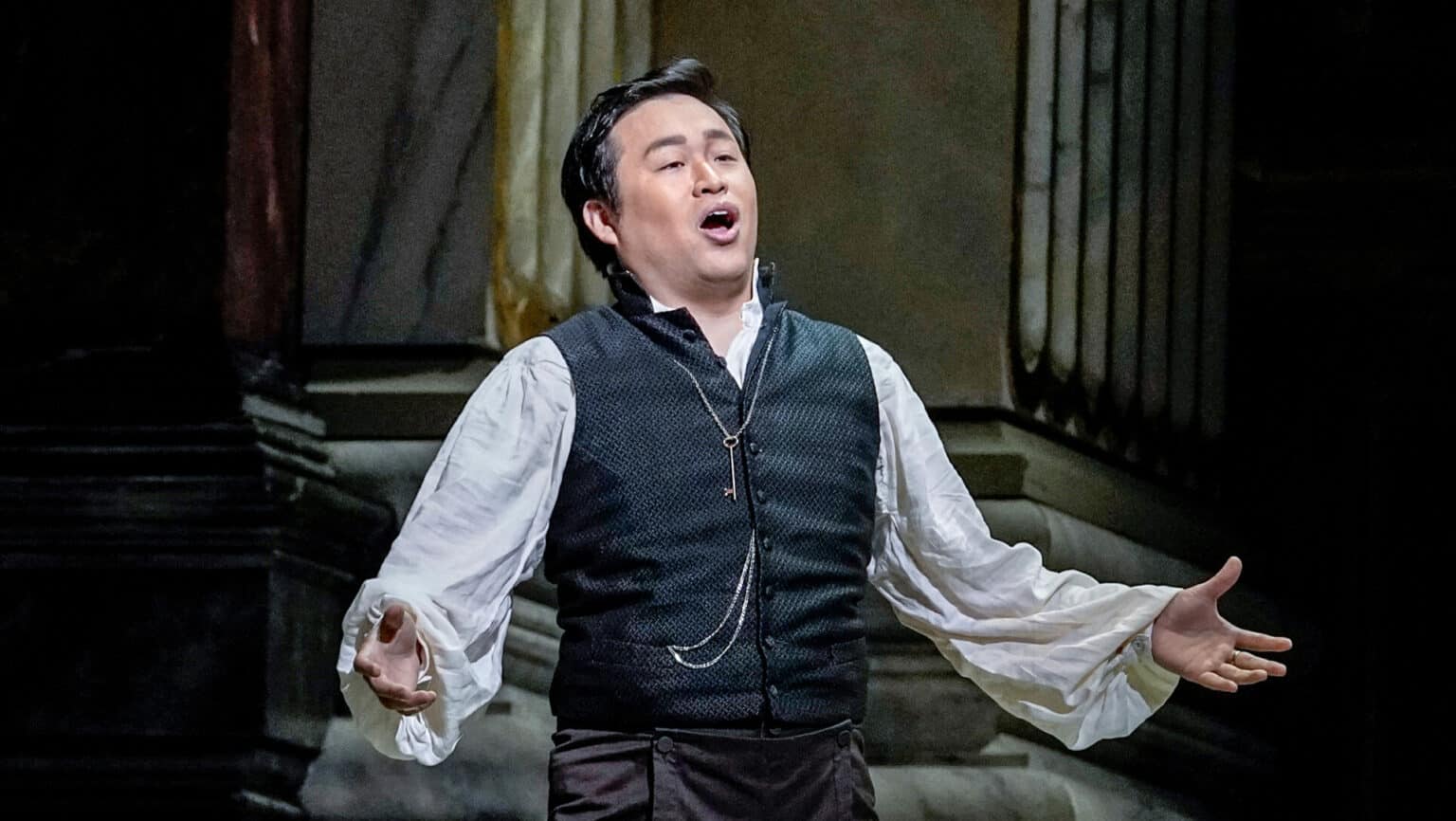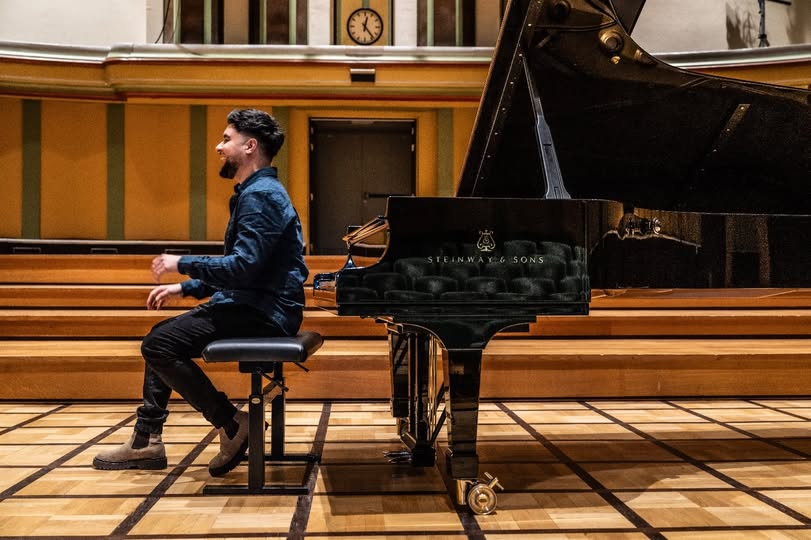Season’s gifts: Stravinsky conducts Sacre in 1929
mainIt’s a Paris orchestra of no great pedigree, but just listen to that bassoon. And those woodwinds.
This is how it’s meant to sound.


It’s a Paris orchestra of no great pedigree, but just listen to that bassoon. And those woodwinds.
This is how it’s meant to sound.

Arturo Benedetti Michelangeli, b. Brescia, January 5, 1920…

The death has been announced of Andrzej Klimczak,…

There has been a rush to repair the…

The Romanian migrant Ionut Cibotariu was working on…

Session expired
Please log in again. The login page will open in a new tab. After logging in you can close it and return to this page.
My voice teacher recorded something of Stravinsky with Stravinsky conducting (I’m ashamed to say I don’t remember what he said it was). And had been coached in the Russian by Igor’s wife.
My voice teacher said that Igor was such a funny man. There was some place that he stopped the orchestra to correct what the bassoon was doing:
“Not toodle doodle do”
“Toodle DOODLE do”
My voice teacher ended up having to suppress his laughter and said he was cutting up during the next take, but listening to the play back said you couldn’t really hear it.
Sorry I don’t know what it was that he recorded, something with a tenor soloist. It was some 28 or so years ago that I heard the story, and didn’t take in the name of the piece recorded.
I love this recording of Stravinsky conducting.You can hear the rhythmic freedom of Stravinsky’s nature, doesn’t sound like someone caging themselves to sound indoctrinated and correct. In fact, in many ways it sounds like a completely different piece from what I’ve heard in other recordings and performances.
THANKS Norman
Oh I found it: He recorded Le rossignol and Mavra with Igor. Part of what’s now sold as the complete Columbia collection of Stravinsky.
https://www.arkivmusic.com/classical/album.jsp?album_id=2145260
The 1960 stereo cut by the composer is the best interpretation I have heard.
Yes, Rob, it is a great recording.
But for another great stereo take, try Muti and Philadelphia. I’m also fond of Ancerl’s recording with the Czech Philharmonic. And I’m no great fan of Solti, but he did a fine recording in Chicago.
And for the historically minded, the old Monteux 78-era recording with the San Francisco Symphony is pretty wild! (Monteux of course conducted the premiere.)
Comparing Muti/Philly’s 1980 with Stokie/Philly’s 1930 recordings shows how far the Rite progressed into normal repertoire. In 50 years the “edge of seat” feeling morphed into “do it in my sleep.” Stravinsky’s NYPO ’40s mono recording was my first LP – I still love it with Sol Goodman’s tympani playing a real treat.
The above clip is a remarkable bit of history. Another interesting and relatively easy to find historic vinyl version (for those of you that enjoy such things) is Horenstein’s interpretation with the SWR Symphony Orchestra, Baden-Baden, on VOX. After the Stravinsky stereo version on Columbia, its my other “go-to” for this work. (The Horenstein is also available in digital versions through Pristine Classical, paired on CD with the Stravinsky “Symphony of Psalms”, which was originally released with Horenstein’s pitch-black 1953 reading of Strauss’ “Metamorphosen” on Angel) Couldn’t resist sharing a bit of my “Horenstein fetish” here!
This recording is available on Apple Music, Spotify and Amazon Music. Search for “Stravinsky Staram”. The databases misspell Walter Straram.
Is this from the Pearl CD. I remember my copy (buried in storage) as having excessive surface noise but this sounds so much better.
In spite of the historical interest of Stravinsky recording his own piece, the best recording is – to my feeling – the one made by Igor Markevich in 1959 with the Philharmonia. Markevich is able to render the anxiety, magic and intensity better than any other recording I know. Although most of the other recordings have better sound quality and better ensemble playing, often you hear a ‘classicized’ version of the piece, tamed by technical sophistication, and that was not the idea of the music, which reveals something terrifying of human nature.
Stravinsky was by no means the best conductor of his own music; sometimes it works very well, often it does not. His technique was quite restricted, cultivating the downbeat gestures on the expense of everything else.
Agree re Markevitch. He remade Le Sacre as an EMI stereo LP. I seem to remember Testament had both versions on one CD.
Orchestra of “no pedigree”? You might want to rethink that. The Straram orchestra was a winner of several prix du disque awards and had a very high reputation at the time.